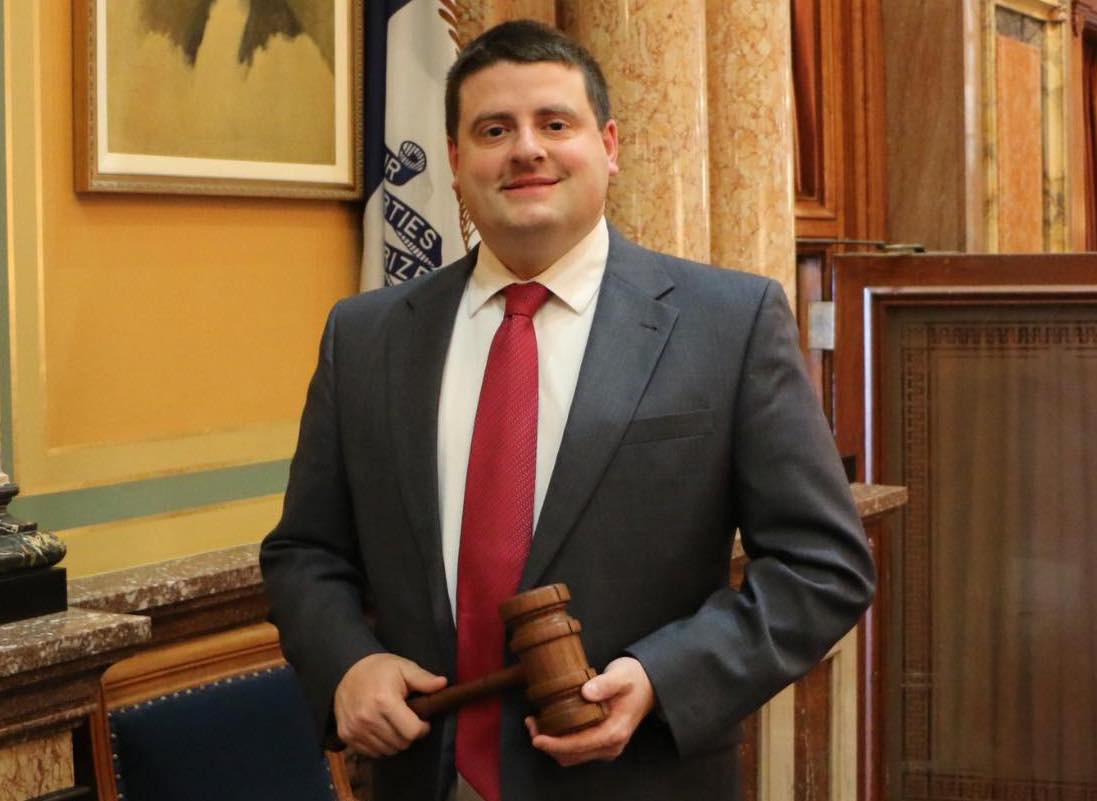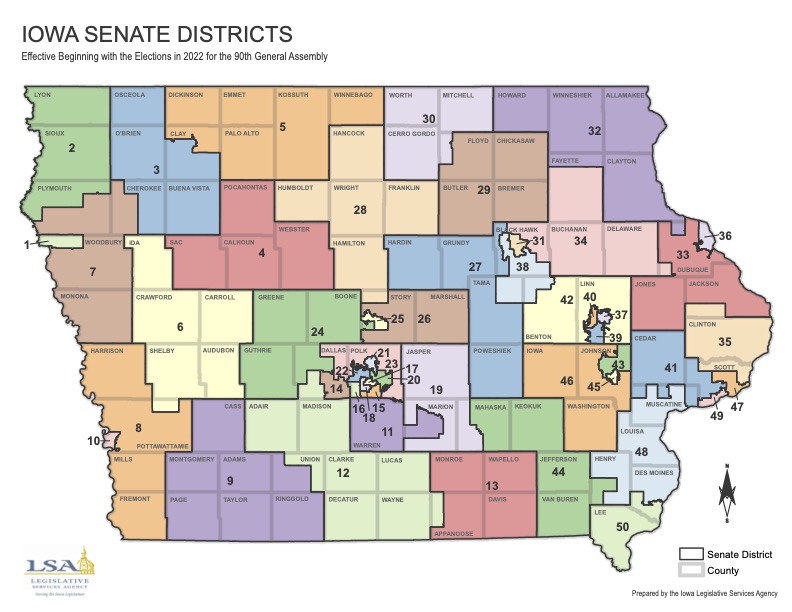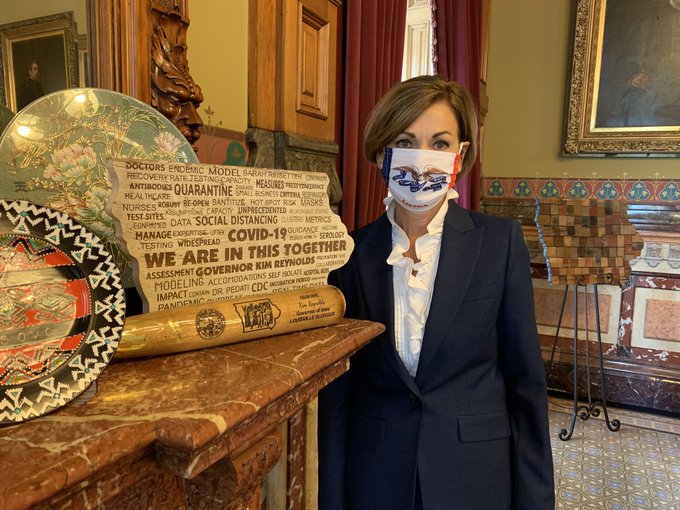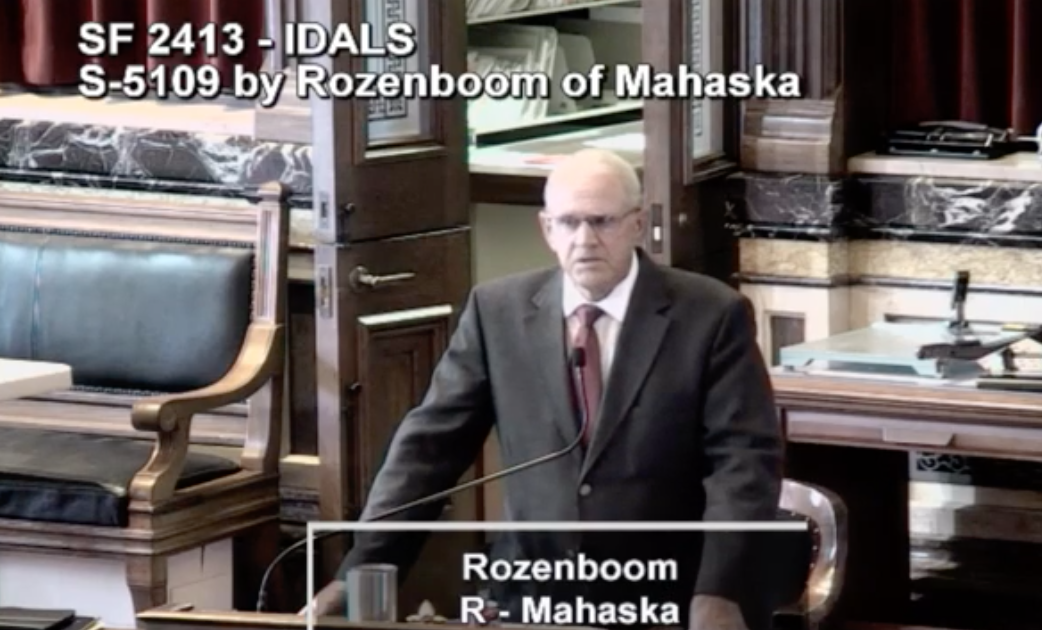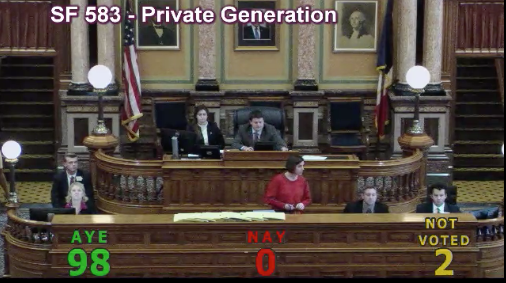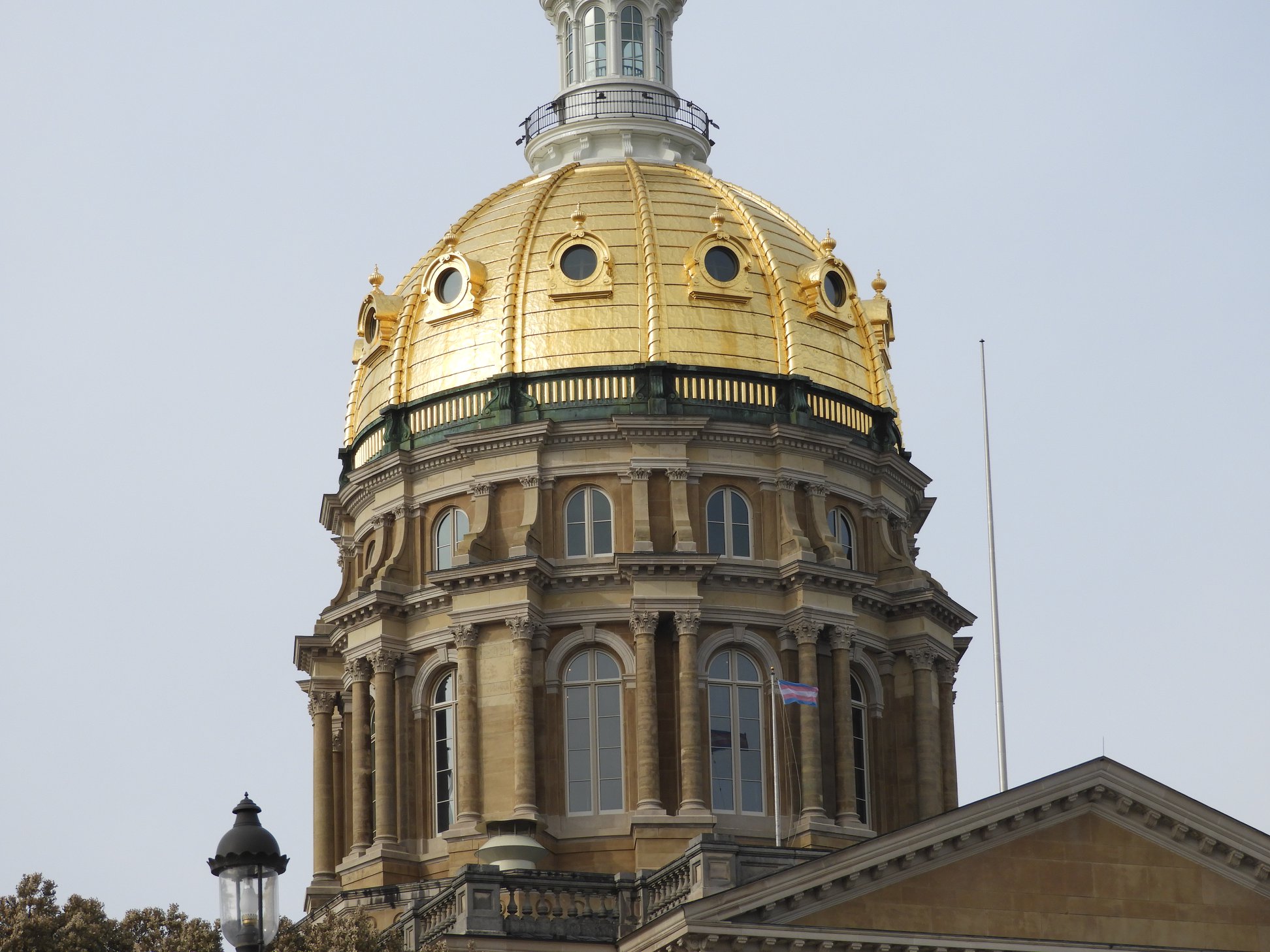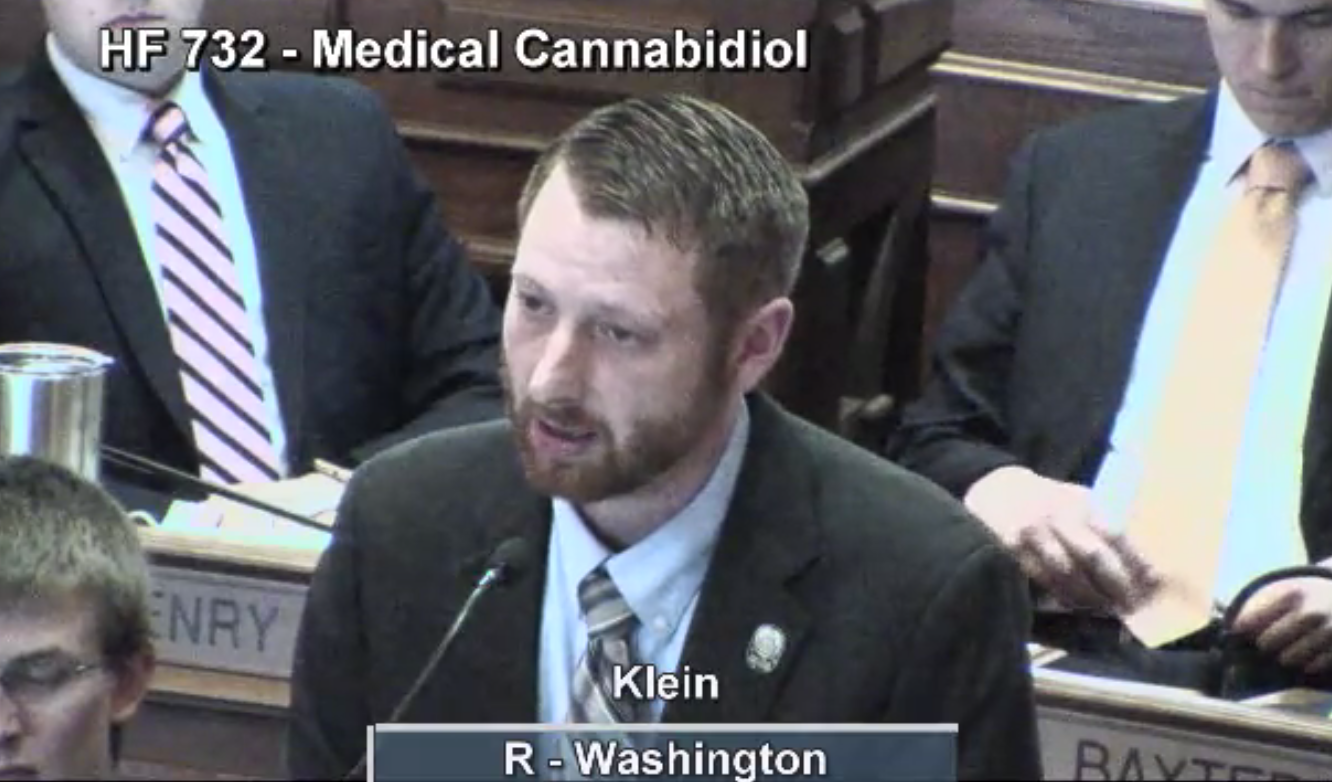Iowa Senate Appropriations Committee Chair Charles Schneider has pledged not to include language dismantling the Des Moines Water Works in any spending bill this year.
Legislative action to transfer authority over the Des Moines Water Works from an independent board of trustees to area city councils was once seen as nearly a sure thing, thanks to strong support from the Iowa Farm Bureau. But Republican leaders never brought House File 484 up for debate before a legislative deadline in late March. The bill now sits on the “unfinished business” calendar, fueling speculation that it may rise from near-death before lawmakers adjourn for the year.
Governor Terry Branstad has been an outspoken critic of Des Moines Water Works leaders since the utility sued three northwest Iowa counties in 2015, demanding better enforcement of the Clean Water Act to reduce agricultural runoff. At the Waukee legislative forum on April 8, I asked Schneider about a rumor that Branstad has told House and Senate leaders to get the Water Works bill on his desk, and that such language may be attached to the “standings” bill in order to accomplish that end. The standings bill is typically among the last pieces of legislation considered each year and can become a grab bag of provisions power-brokers demand. Would Schneider commit not to add Water Works language to the standings bill or any other appropriations bill coming out of his committee?
Schneider: That’s the first I’ve heard of the standings rumor. It’s not going to go in my standings bill, and I’m not going to support a Water Works bill unless the Des Moines Water Works, West Des Moines Water Works, and Urbandale Water Works themselves–the utilities, not the cities, the utilities–tell me they would like to see some language in there to give them the ability to regionalize on their own.
Bleeding Heartland: So, you won’t put that in any appropriations bill.
Schneider: I’m not putting it in my standings bill.
Republican State Representative Rob Taylor responded to my question as well:
And I also sit on Appropriations on the House side now. I’m not the chair, but I wouldn’t support putting it in that standings bill either. I think that a bill with that kind of substance–although I will say, that the original bill, and the House version with the amendments from Representative [Jarad] Klein have changed substantially from the original bill–I think that’s a, that’s a critical enough bill for or against that it needs to stand on its own. And putting it on an appropriation is not appropriate, and I would fight tooth and nail to prevent it.
I enclose below the official video from yesterday’s Waukee forum. The relevant response from Schneider begins at 1:20:00.
Here’s hoping Schneider has the clout to keep Water Works language out of any final spending bills. He also serves as majority whip, the third-ranking Senate GOP leadership position. The three independent utilities Schneider mentioned oppose the Water Works bill. The city of Des Moines is still registered in favor of House File 484, but the city of West Des Moines changed its stance last month from “for” to “undecided.”
To my knowledge, most of the Republicans on the House Appropriations Committee have taken no public position on this legislation. I’m wary because Appropriations Chair Pat Grassley formerly chaired the Agriculture Committee, where the Water Works bill originated. Assisting the Farm Bureau’s revenge mission could bring political benefits to Grassley, who is widely expected to run for Iowa secretary of agriculture if Bill Northey does not seek re-election in 2018. A front group for the Farm Bureau called the Iowa Partnership for Clean Water ran radio ads supporting the Water Works legislation.
UPDATE: On Iowa Public Television’s “Iowa Press” program this weekend, O.Kay Henderson asked Senate President Jack Whitver, “Will the Iowa legislature dismantle the Des Moines Water Works?” After hesitating for a moment, Whitver answered simply, “No.”
Continue Reading...

